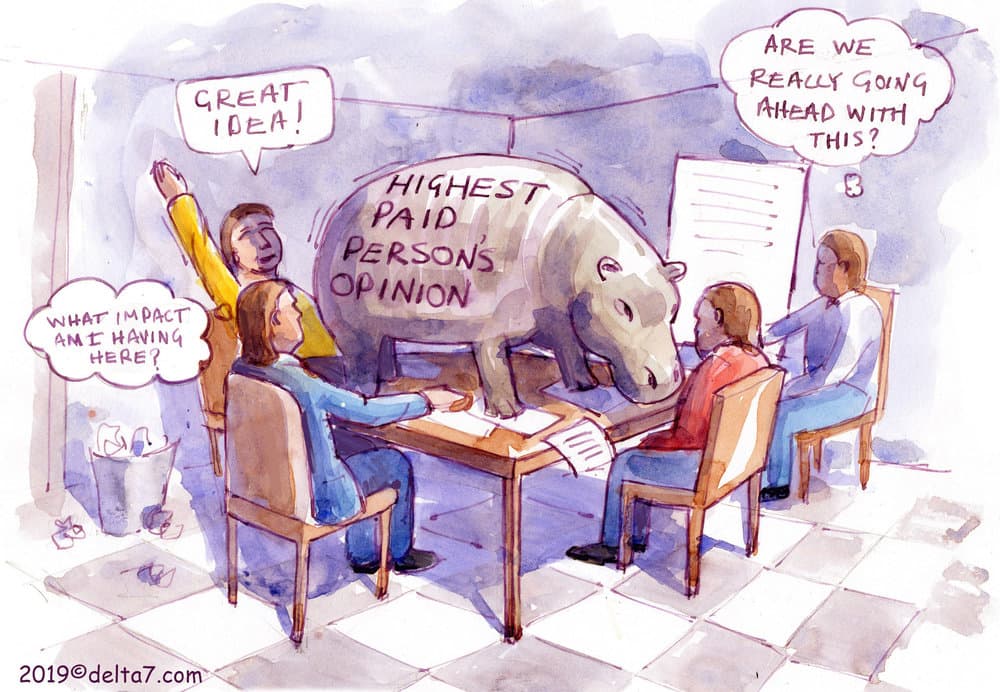You might be making your team complacent by killing Dissent
Tightness. Muscles tense up. Your face gets hot. Your breathing gets faster. You start to feel defensive, start thinking about what you need to say in return before they're done talking. If you're like most people, this is how your body reacts to people challenging you directly or giving you harsh feedback on something you shared. Our bodies seek confirmation. They don't seek dissent. Dissent feels painful, while having people agree with us makes us like them even more. We're incredibly biased. We view people who agree with us as being more intelligent. We like them more. We want them around. It's harder to feel that way about people who challenge our ideas, who challenge our views of the world. And that's the main reason a lot of leaders fail.
As leaders, we're always on. People are constantly creating a story based on our behavior. They use it as a compass to know what to reinforce and what to stop doing. People can sense when:
- Only the people who don't challenge us are getting promoted
- We're angry and pushback when people share problems with our views
- We praise the people who are constantly agreeing with us and don't do it for those who disagree with us
When people see or feel that this is happening, they adjust their behaviors to start saying "Yes" and not questioning our visions. We create a culture of complacency. We remove agency from people. We stifle their creativity, growth and, eventually, this will come to bite us in our results.
Even if we're experts in a field, over half of our ideas are simply wrong and not the best investment of the team's time. The farther away we are from the actual work getting done, the higher that number is. So we will not get the input we need to succeed. "Do no harm" in this case is not enough. We need to actively farm for dissent. Otherwise, the natural thing is to defer to the highest paid person's opinion. We need to assault the idea that the leader tells other people what the vision us or what to do. If this is the rule, the team will eventually become complacent.
 Avoid HiPPOs, farm for dissent – Taken form delta7.com
Avoid HiPPOs, farm for dissent – Taken form delta7.com
A complacent team is a team that will fail. A leader that created such a team has already failed their company. No matter the results that leader has gotten this far. Retention will drop, especially on the people we want to retain the most: those who care.
Yes, even though we might feel differently, the people who challenge the ideas are usually the ones who care the most. They care enough to go against the natural urge to fall into consensus. They care enough to make us know we haven't been able to create Alignment with them–and this matters. We don't need Agreement all the time. We need Alignment. A team that is aligned that has bought into the vision and ideas is effective. Each person in that team can trust that others will have their backs.
We can't brute-force Alignment. Each time we use power to get it, we destroy trust. We create resentment. So a challenge, a problem, a new idea, or direction someone suggests is a gift. At best, it saves us from committing a mistake the team knows better not to. At worst, it allows us to create that Alignment.
If people don't feel we heard them, if they can't trust the process we used to get to that decision, they can't fall behind it. They can't give their best. On the other hand, if they can trust the process, if we gave voice to all the arguments with genuine curiosity, addressed the risks, and acted on them, we'll not only get things right more frequently, but the team will commit and engage with the vision way more. That is a team that people love working at and where they will grow way faster.